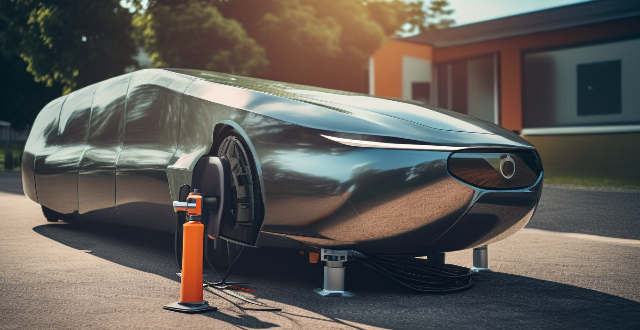The pros of owning an electric car include environmental benefits, lower operating costs, quiet and smooth rides, tax incentives, and energy independence. On the other hand, cons include limited driving range, longer charging times, higher upfront costs, limited charging infrastructure, and potential battery degradation and replacement issues.

Pros of Owning an Electric Car
1. Environmental Benefits
Electric cars produce zero emissions, which means they are much cleaner and more environmentally friendly than traditional gasoline-powered vehicles. This reduces air pollution and helps combat climate change.
2. Lower Operating Costs
Electric cars have fewer moving parts than traditional cars, which means they require less maintenance. Additionally, electricity is generally cheaper than gasoline, so the cost of "fueling" an electric car is lower.
3. Quiet and Smooth Ride
Electric cars are known for their quiet operation and smooth ride due to the lack of engine noise and vibrations typically associated with internal combustion engines.
4. Tax Incentives and Rebates
Many governments offer tax incentives, rebates, or other financial benefits to encourage the purchase of electric vehicles. These can significantly reduce the upfront cost of buying an electric car.
5. Energy Independence
By using electricity generated from renewable sources (such as solar or wind power), electric car owners can become less dependent on fossil fuels and support a more sustainable energy future.
Cons of Owning an Electric Car
1. Limited Driving Range
The driving range of electric cars is typically limited compared to gasoline-powered vehicles, which can lead to "range anxiety" for some drivers who worry about running out of power before reaching their destination or a charging station.
2. Longer Charging Times
Charging an electric car takes longer than filling up a gas tank, especially if you don't have access to fast chargers. This can be inconvenient for drivers who need to travel long distances or make frequent stops.
3. Higher Upfront Costs
Electric cars generally have higher upfront costs than comparable gasoline-powered vehicles, although this gap is narrowing as technology improves and production scales up.
4. Limited Charging Infrastructure
While charging infrastructure is rapidly expanding, it's still not as widespread or convenient as gas stations. This can make planning trips more challenging for electric car owners, especially in rural areas or when traveling long distances.
5. Battery Degradation and Replacement
Over time, the batteries in electric cars will degrade and lose some of their capacity to hold a charge. This could potentially lead to expensive battery replacements down the line, although many manufacturers offer warranties that cover battery degradation for a certain period.